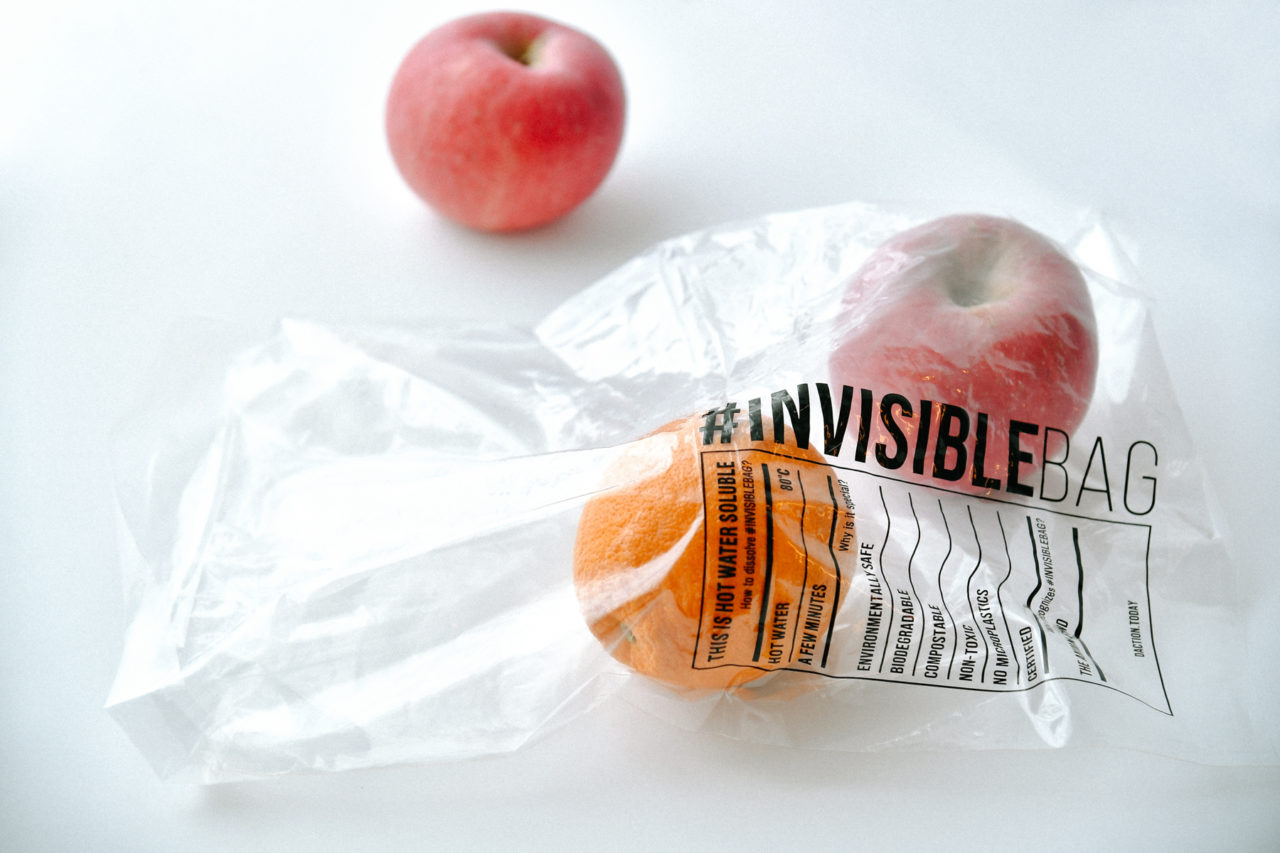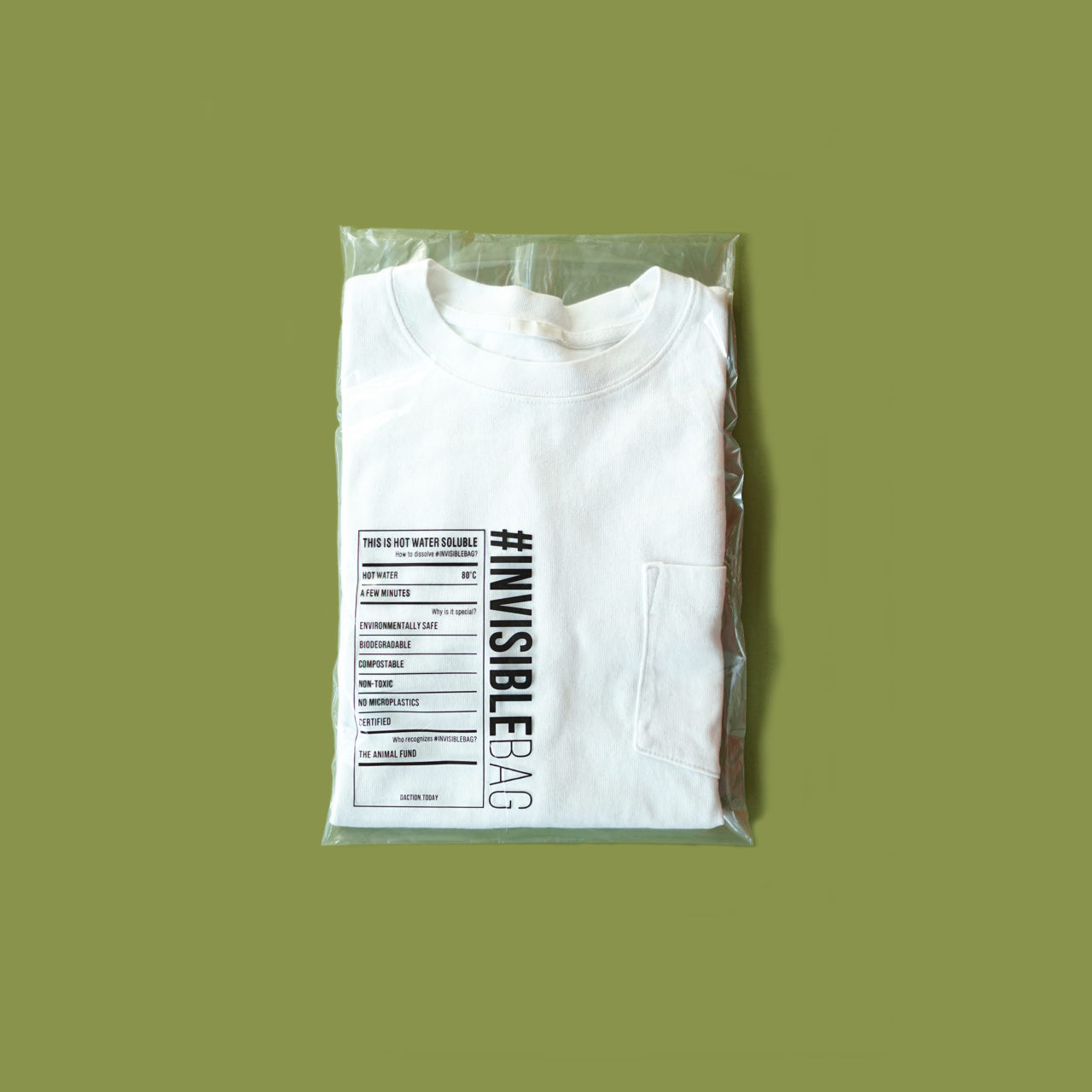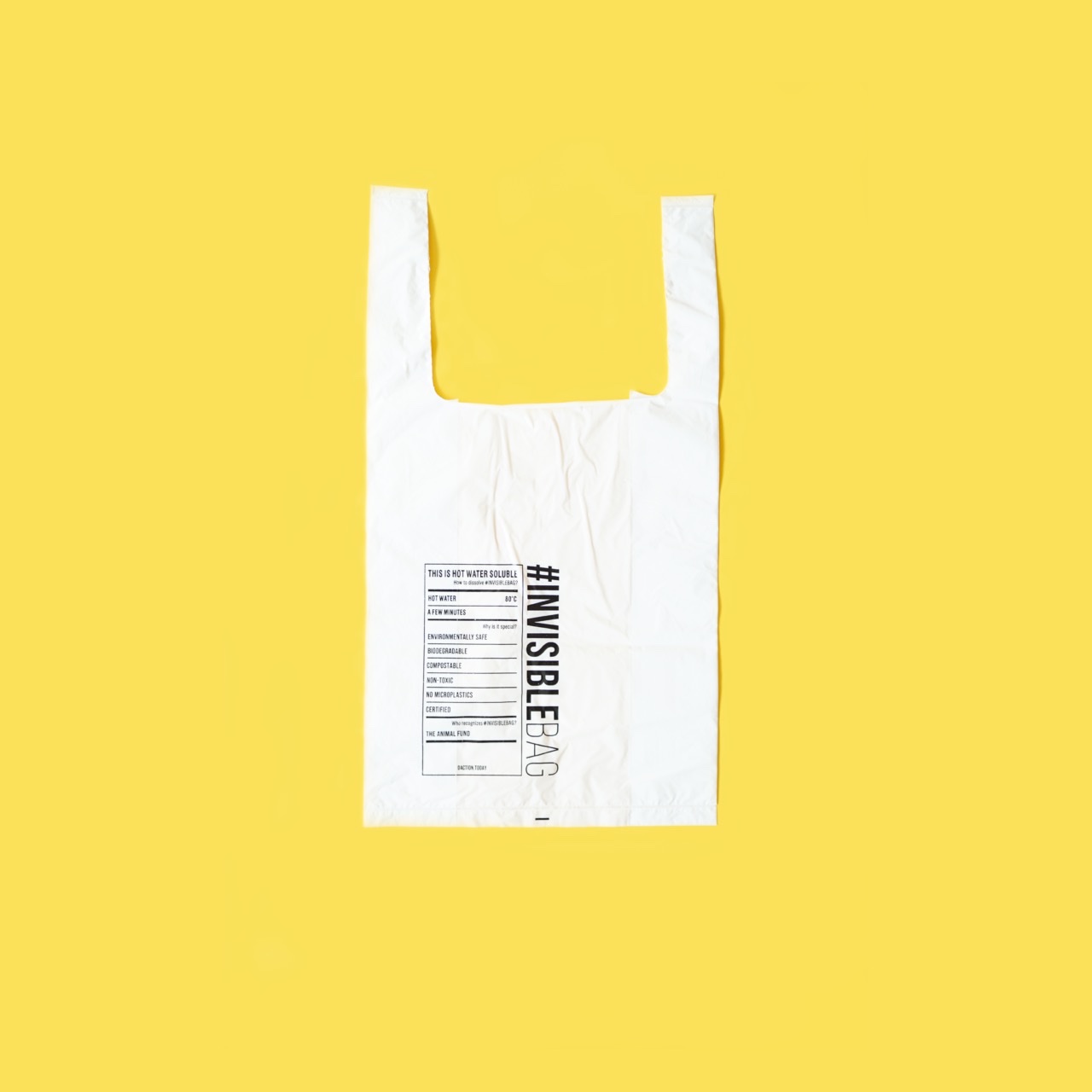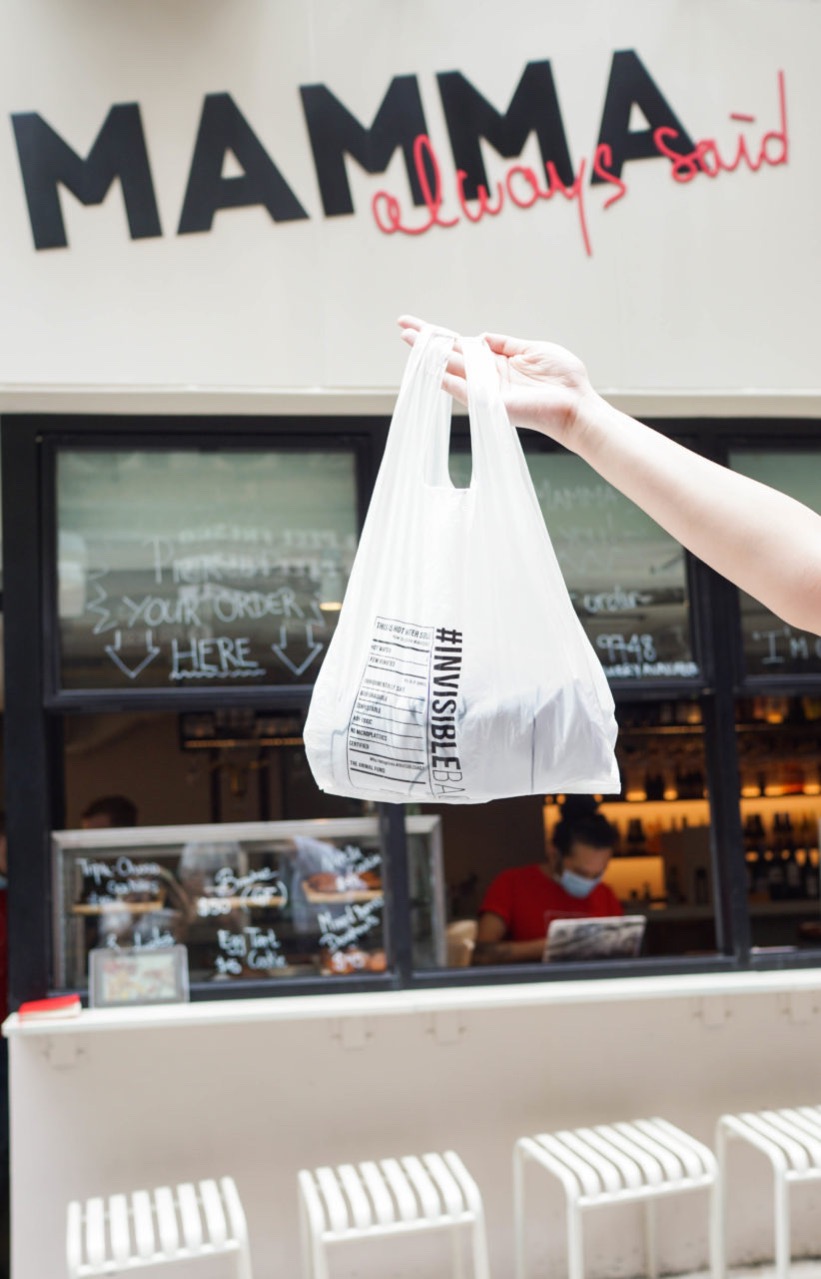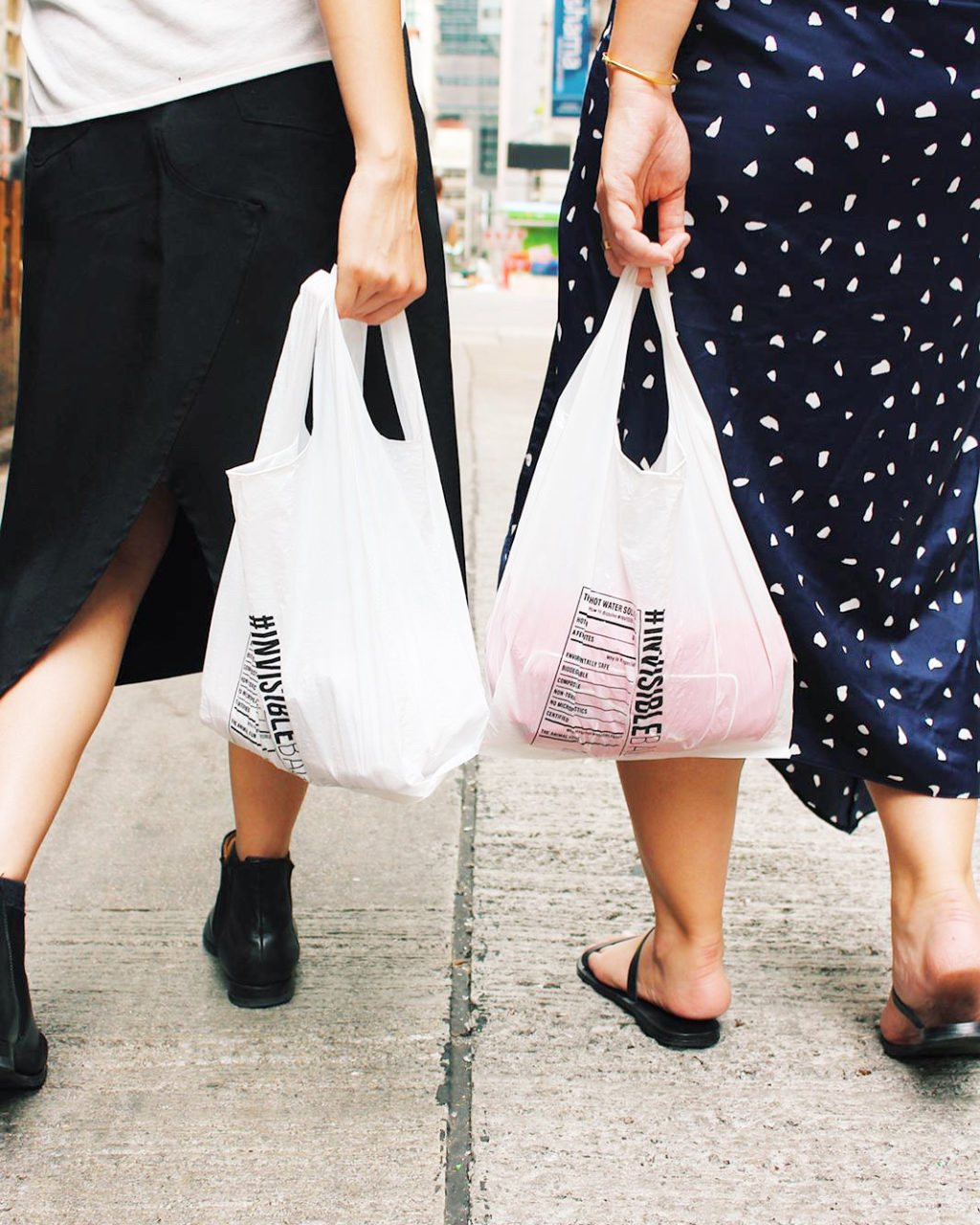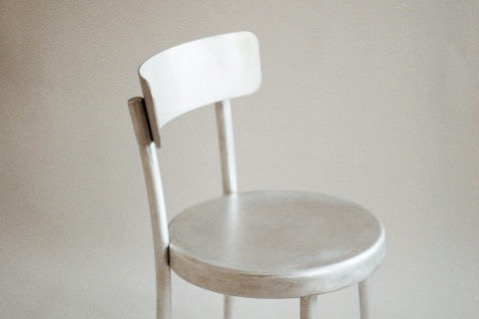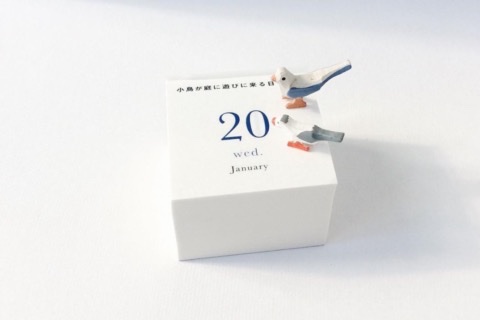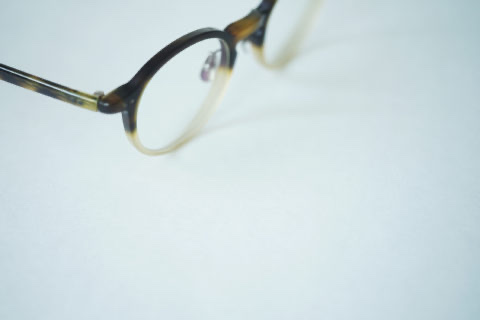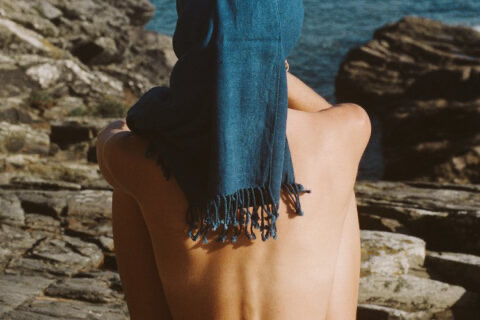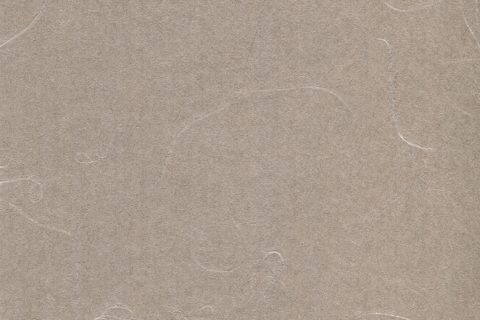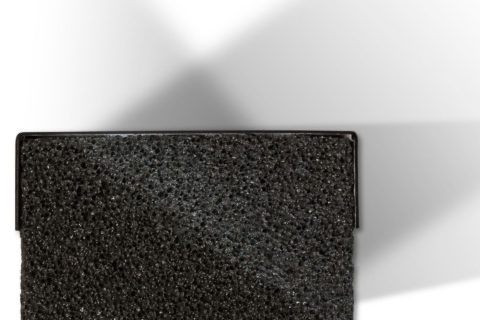
關於死亡,David Eagleman在《死後的四十種生活》裡把死後的世界想像成一個沒有上帝、充滿了各種可能性的宇宙時空,例如所有事情會以倒退著的方式重新發生,或是人們會把相同的事情聚集在一起一次過做完;我們可以過著平行的生活,享受無限可能⋯⋯對Eagleman來說,死比生更有趣。也許,所謂的死,只是生的延續,好像美國科學家Robert Lanza所說,人死後的生命不會結束,不但是永遠的活下去,還會穿越不同的宇宙。
假如人的生命悠長,死後也可以得永生,那物件呢?物件的生命由人類,也就是使用者來決定,它們的生命很多時候都非常短暫,短暫得只有一瞬間,然後就被掉在垃圾筒裡、堆填區裡、汪汪大洋裡。它們被掉棄後卻不等於在地球上消失,有誰關心它們「死後」的狀態?本地環保品牌Distinctive Action的創辦人之一Devana說,透過INVISIBLE BAG讓大眾思考物件的「After Life」。「很多時候,隨著消費而來的即棄包裝、膠袋是無可避免的,除了自攜餐具和環保袋,還要思考如何延續物件的生命、重用和回收再造等可能性。」兩年前的某一天,Devana與法藉丈夫Flavien一起行山時看到滿山都是廢棄垃圾,食物的包裝紙、飲品膠樽,還有數之不盡的膠袋,他們因而忽發奇想地建立自己的品牌,推出環保產品,藉此推廣永續生活。經過兩年時間的籌備,INVISIBLE BAG於今年面世。「為了尋找適合的物料,我們去了印尼、歐洲等地,終於找到了可自然分解的物料來製作膠袋。只需數分鐘,膠袋便能完全溶解於80度的熱水中,不但無毒,溶解後更不會殘留微塑膠,所以不會污染海洋和生態環境。」看著膠袋於熱水中被攪伴,由有變無,消失得無影無蹤,因而名為「看不見的袋」。「只有源頭減廢才是實踐永續生活的最佳方法。」Devana說。
In his book Sum: Forty Tales from the Afterlives, David Eagleman depicts life after death as a Godless universe full of extraordinary possibilities. In one afterlife, everything that has happened will happen again, but in a backward manner. In another afterlife, all the moments that share the same quality are grouped together, and you live that moment again, all at once. In the afterlives, we could live parallel lives and enjoy infinite possibilities. For Eagleman, death is more interesting than life. To him, death is just the continuation of life. As the American scientist Robert Lanza said, life doesn’t end after death, you live forever, and will even travel across different universes.
A person can live a long life, and continue to live eternally after death. So, what about objects? The lifespan of an object is determined by human beings, i.e. the user. Most of the time, objects live a very short life. In the blink of an eye, their lives can end in a trash can, landfill, or ocean. That said, they don’t just disappear off the face of the earth. Who would care about their afterlife anyway? Devana, one of the founders of the local eco-friendly brand Distinctive Action, hopes that the public starts to consider the afterlife of objects through her creation, INVISIBLE BAG.
“At times, disposable packaging and plastic bags that come with consumption are unavoidable. In addition to bringing our own tableware and shopping bags, we should also think about how to extend the life of an object, may it be reuse, recycle, or any other methods.” On a random day two years ago, Devana and her french-native husband Flavien were hiking together when they found the path full of garbage, food wrappings, plastic bottles, and countless plastic bags. The idea of launching their own brand happened on a whim; as they decided to focus on developing eco-friendly products to promote sustainable living. After two years of preparation, INVISIBLE BAG was finally launched this year. “In order to find the most suitable material to make our plastic bags, we have visited Indonesia, Europe and many other places. We eventually found a material that can naturally decompose. With just a few minutes, the material can be completely dissolved in 80-degree water. Not only is it non-toxic, but it doesn’t leave any residual microplastics after dissolving. This means it won’t be a pollutant to the ocean and ecological environment.” Witnessing the plastic bag gradually dissolve and eventually disappear in the water, this is how the name INVISIBLE BAG came along. “Waste reduction is the best and only way to sustainable living,” Devana said.
